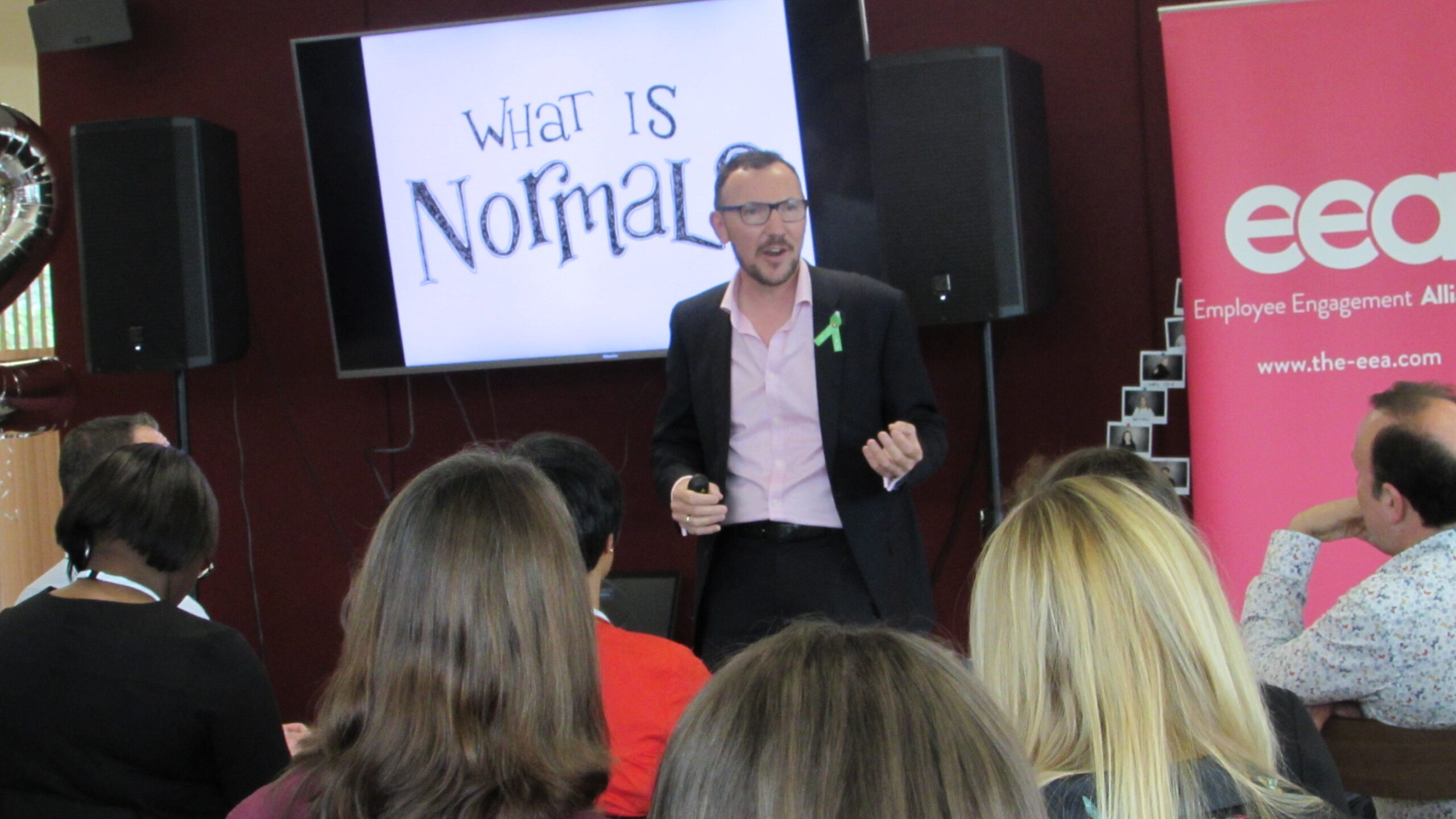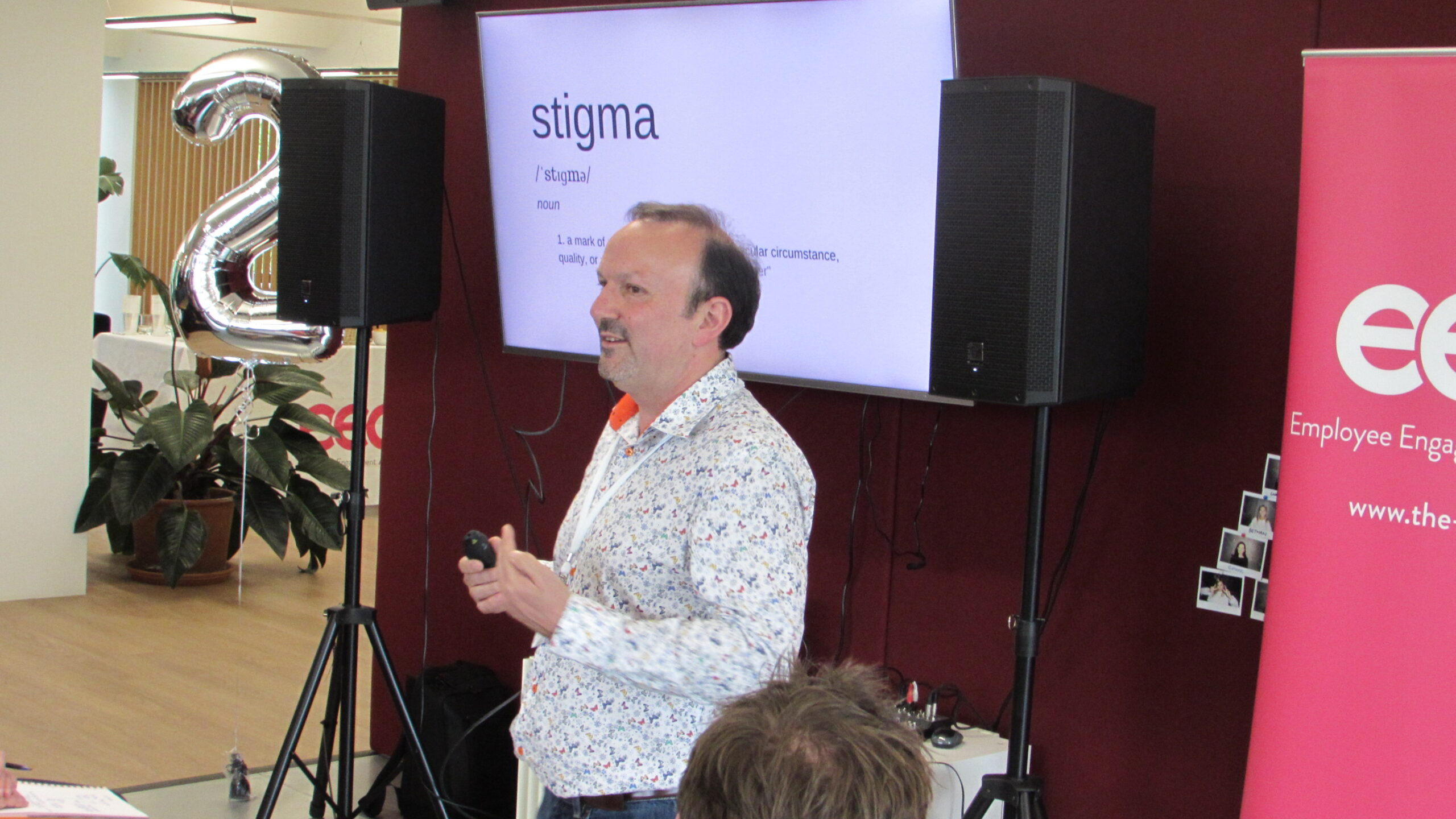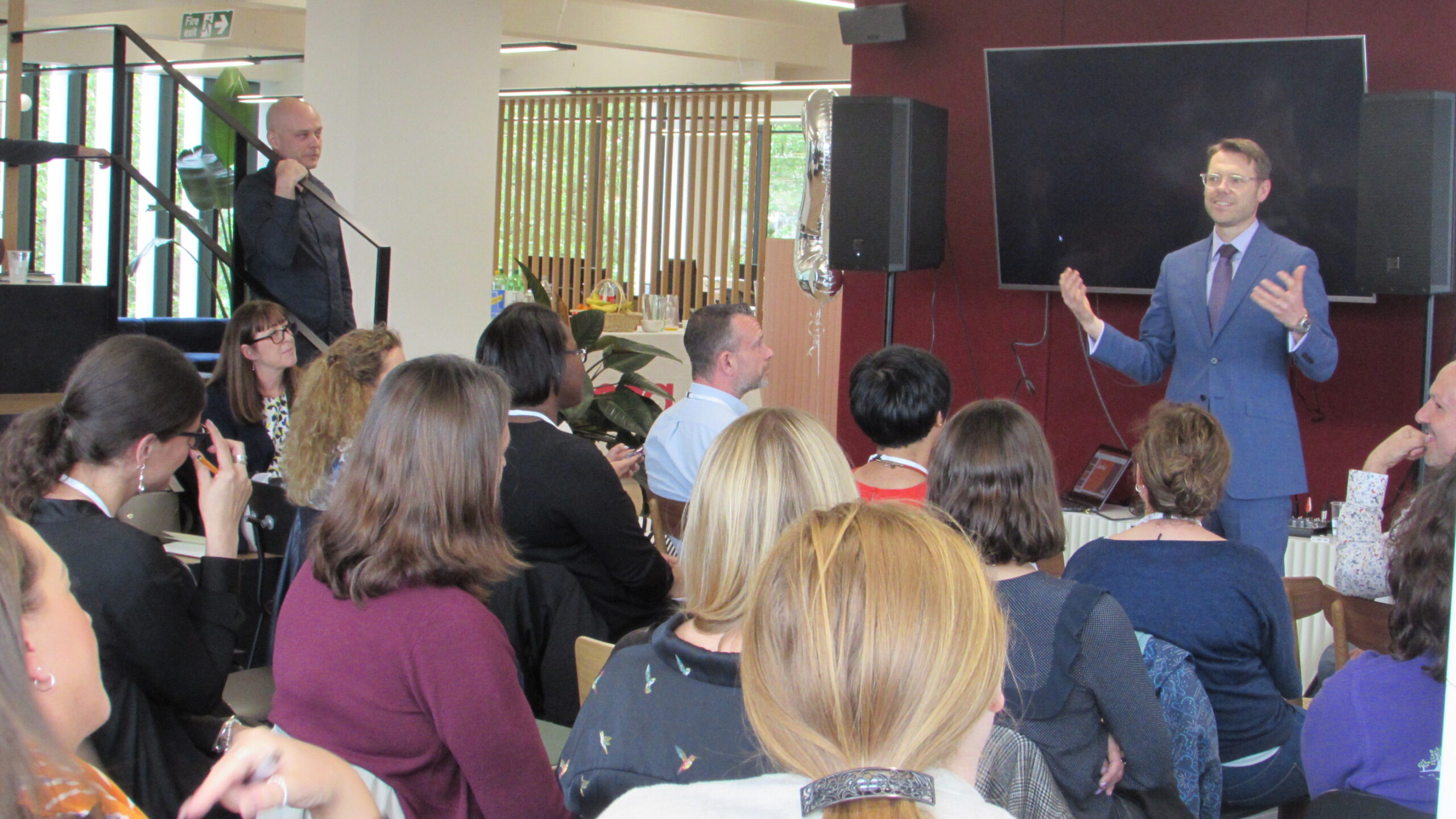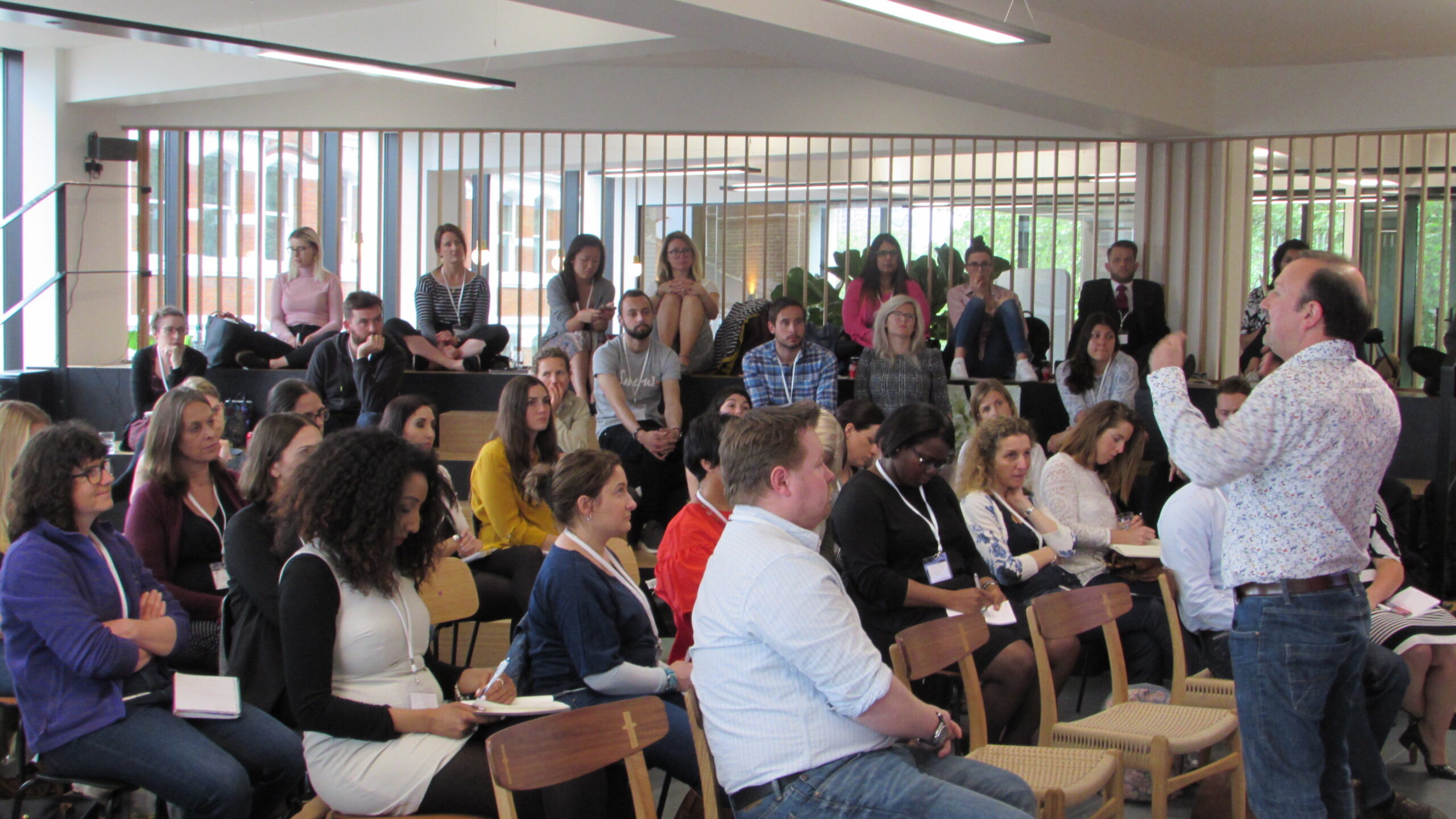
19th June 2018
Are you looking after your colleagues’ mental health?
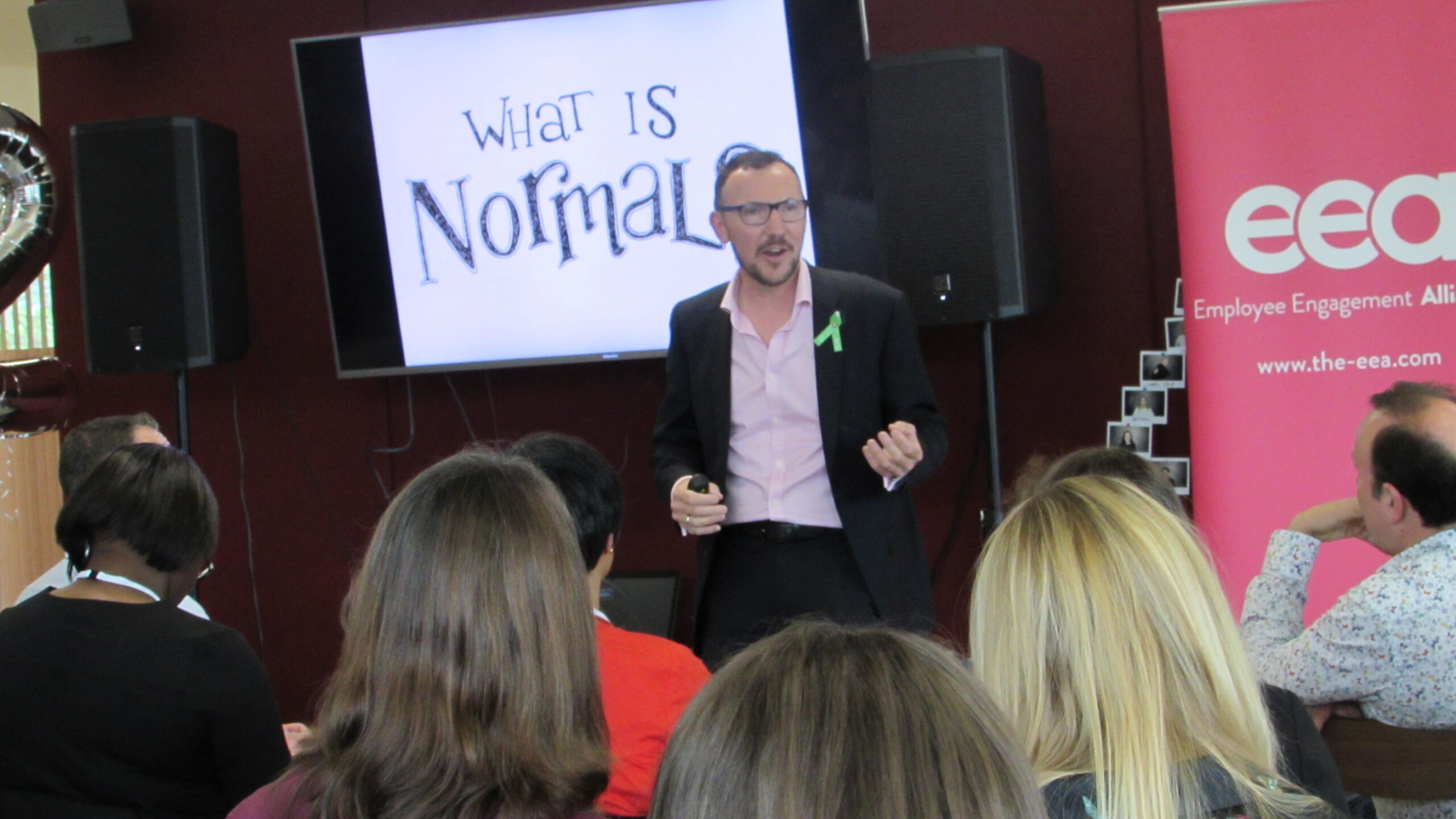
In today’s workplace top businesses are recognising the importance of their employees by putting employee wellbeing first. But, a large number still overlook the importance of mental health as an integral part of their employee engagement and wellbeing schemes.
Not only does investing in mental health create a supportive workplace culture and improve employees quality of life, it also has a direct effect on business success. A report by the Centre for Mental Health revealed that absence due to mental health cost the UK economy a colossal £34.9 billion last year.
Our event Open up with Peakon and Breaking the Silence looked at how to tackle mental health in the workplace.
Why is mental health treated differently to physical health?
Although we have come a long way in recent years, the stigma associated with mental health is far from gone. “A colleague with a broken leg will get phone calls, well wishes, cards and a warm welcome upon their return. A colleague who is away for their mental health is unlikely to receive any of those.” said David Beeney from Breaking the Silence.
Most people don’t intentionally discriminate or stigmatise, they just don’t know enough about mental health. The silence that surrounds mental health makes it very difficult for people to know the right way to react and adds to the stigma. Those suffering with mental health are afraid to speak for fear of judgment while those around them are afraid to ask for fear of saying the wrong thing. It is this silence and lack of understanding that differentiates the treatment of physical and mental health.
Why does it affect you?
In 2017, poor mental health cost UK businesses:
- £10.6 billion in sickness absence
- £21.2 billion in reduced productivity at work
- £3.1 billion replacing staff who leave their jobs as a result of their mental health
The huge cost associated with poor mental health support proves that creating a meaningful health and well being scheme is profitable from a business perspective. But it also delivers priceless value to each individual within your organisation.
We’ve all heard the statistic – 1 in 4 people experience a mental health challenge each year, but David Beeney pointed out that that the reality is even stronger. Although 1 in 4 are reported to experience a mental health problem each year, 1 in 1 has mental health and will experience mental fatigue of varying degrees every year.
Mental health is relevant to everyone, and investing in it results in: productivity, loyalty, less grievance, fewer complaints, less absence and generally more satisfied people. But more importantly, it gives your people the ability to manage their mental wellness challenge whilst continuing to perform.
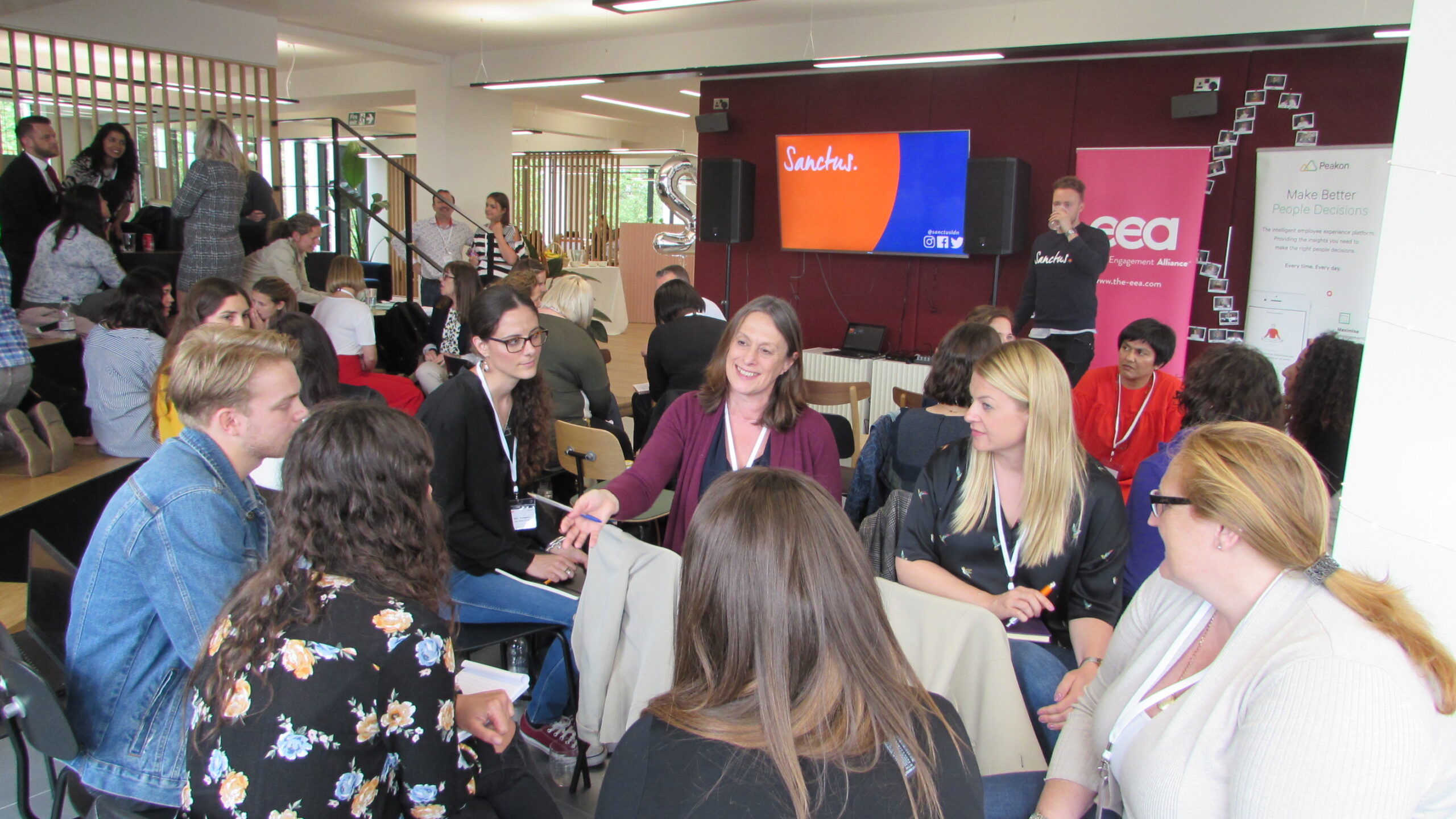
George Bettany, Sanctus, facilitating group discussions at Open Up – Employee Engagement and Mental Health
How do you create a supportive environment?
The lack of understanding is fueled by the silence that surrounds mental health so start talking!
Ask the right questions and listen
Jonathan Phelan, Evenhood, talked us through how to have a Mentally Healthy Conversation. In a nutshell: listening, with a non-judgemental mind and focusing on triggers, resilient conditions, talents and abilities.
Don’t try and give answers, just take an interest, listen and gently nudge the conversation by asking the right questions.
As a colleague you don’t need to know the label or story, and shouldn’t expect an explanation. You need to know:
- Triggers
- What makes for a good day
- What makes for a bad day
- Talents
Following these general guidelines will mean support is simple, effective and easy to implement.
Use the right language and know what to look for in your colleagues
Look for changes in energy levels. A sudden increase or sudden decrease in energy levels can be a sign of a change in mental health. Energy is also a safe word to use. It’s closely linked to wellbeing without being invasive. Ask: “Are you ok? I’ve noticed a change in your energy levels.”
As always, line managers are key
It is important to create the right relationship. One to one meetings should begin with conversations unrelated to work – prove that you care about your employees well being first. When a colleague is struggling they should feel comfortable to talk to their line manager and know they will be given the right support. Creating kinder more compassionate cultures is key and starts with line managers.
Be honest and drive from the top
Honesty around mental wellbeing needs to be driven from the top to encourage an open and non-judgmental environment.
Have a long term approach
There’s no point having one workshop for mental health awareness week and doing nothing else throughout the year. You need to be embedding mental health and wellbeing into your workplace culture permanently.
Most importantly start changing work culture – its ok not to be ok.
3 initial steps to take
Make sure everyone in your organisation knows what is already available to them.
Many businesses already have services such as counseling or Employee Assistance Programmes are available to colleagues but nobody knows about them or how to use the service. As a first step, make sure everyone in your organisation knows what you already have.
Get buy in from the top
We haven’t cared for our people in the way that we need to and it is now costing businesses a huge amount of money. If you’re struggling to get buy in, challenge with hard HR data about the cost of mental health on your organisation. If they can’t understand the importance from a caring perspective, make them see it from a financial one.
Get your people together and come up with tools collectively.
Different things work for different people. Start small, find out what the biggest challenges are, and allow your people to come up with the answer. It could be as simple as allowing for flexible or remote working.
Thanks so much to our Partners at Peakon and speakers Jonathan Phelan, David Beeney, George Bettany and Andrew Rodgers for helping us put together a truly powerful event.


